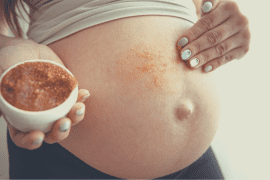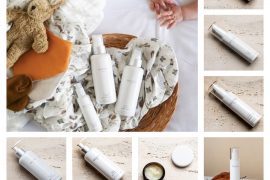Nutrition
Look at what you’re eating and think in terms of repairing damaged skin from within. Eat a nicely balanced diet full of power nutrients packed with beneficial essential fatty acids and antioxidants to keep the immune system strong. This includes foods rich in omega 3 like oily fish. Some believe that swapping out dairy for fermented foods like kefir and sauerkraut (or if they can’t be stomached, a good probiotic supplement) will help promote better health. Decrease meats and increase dark leafy greens, whole fruits and sprouted nuts and seeds. Consume as many alive foods as possible. Vegetable juices, smoothies, salads and steamed vegetables will be so good. You may need to get creative in terms of how to turn the usual comfort foods into nutritious alternatives, but it will be so worth it.
Temperatures
As the outside temperatures drop, it is tempting to turn up the heat indoors or bundle up in clothing. For eczema sufferers, moving between the different temperatures can put pressure on their already stressed immune system, so while you don’t need to be cold indoors, make sure the difference is not too extreme. Watch for changes in humidity – too much and perspiration can cause a flare, too little and the skin dries, causing a flare! Ideally, use a humidifier to combat the dry heat caused by our heating systems. Wear natural fibres to minimise irritants.
Hydration
Dry skin is itchier and more prone to infection. Hydrate from the inside with soups, smoothies and herbal teas as well as plenty of water. Don’t linger in the bath and avoid bubble baths altogether. Bathe in warm water (not too hot), following with a suitable emollient on the skin, free of perfumes and additives, to prevent moisture loss.
Dust
Spending more time indoors also means hanging out with dust mites, which thrive in damp homes or bulky winter bedding – aggravating eczema at night. Wash bedding and toys regularly in hot water, dry thoroughly in the sun, and vacuum often.
Products
Avoid soaps and find a soap-free cleanser that won’t strip the skin of its oils. Minimise irritants and triggers by carefully considering the products you use – especially laundry products, making sure they’re suitable for sensitive skin and free of perfumes.
Support organisations and further education:
Eczema Association of Australasia
An educational site offering practical information about living with or caring for someone with eczema http://www.eczema.org.au/
Parent to Parent
Empowering families and whanau of people with disabilities and health impairment through support and information. www.parent2parent.org.nz
Allergy New Zealand
A national charity that provides reliable information, education and support for allergies and eczema. www.allergy.org.nz
DermNet NZ
A source of authoritative information about skin diseases and their management. www.dermnet.nz
Connecting people to nature and good health. That’s how it all started in 1974. Today Comvita continues that vision by researching and selecting sources of natural ingredients, carefully tending and harvesting them to preserve their purity. Medihoney® is not just your everyday edible Manuka honey. What makes Medihoney® Antibacterial medical honey different? It is clinically proven to support wound healing. It is a medical grade honey with standardised antibacterial activity.
Hannah Schenker is a freelance writer, editor and regular contributor to The Natural Parent Magazine. She lives with a touch of magic in Golden Bay, New Zealand.










